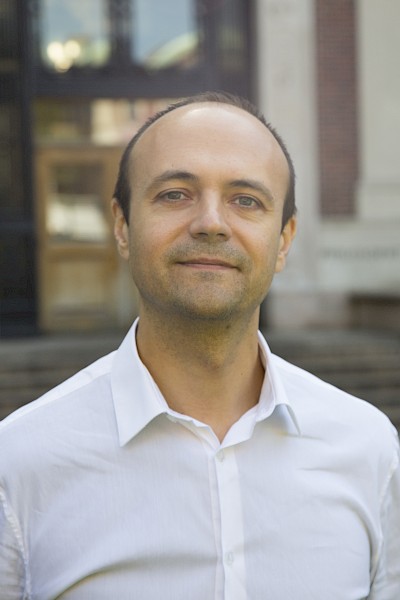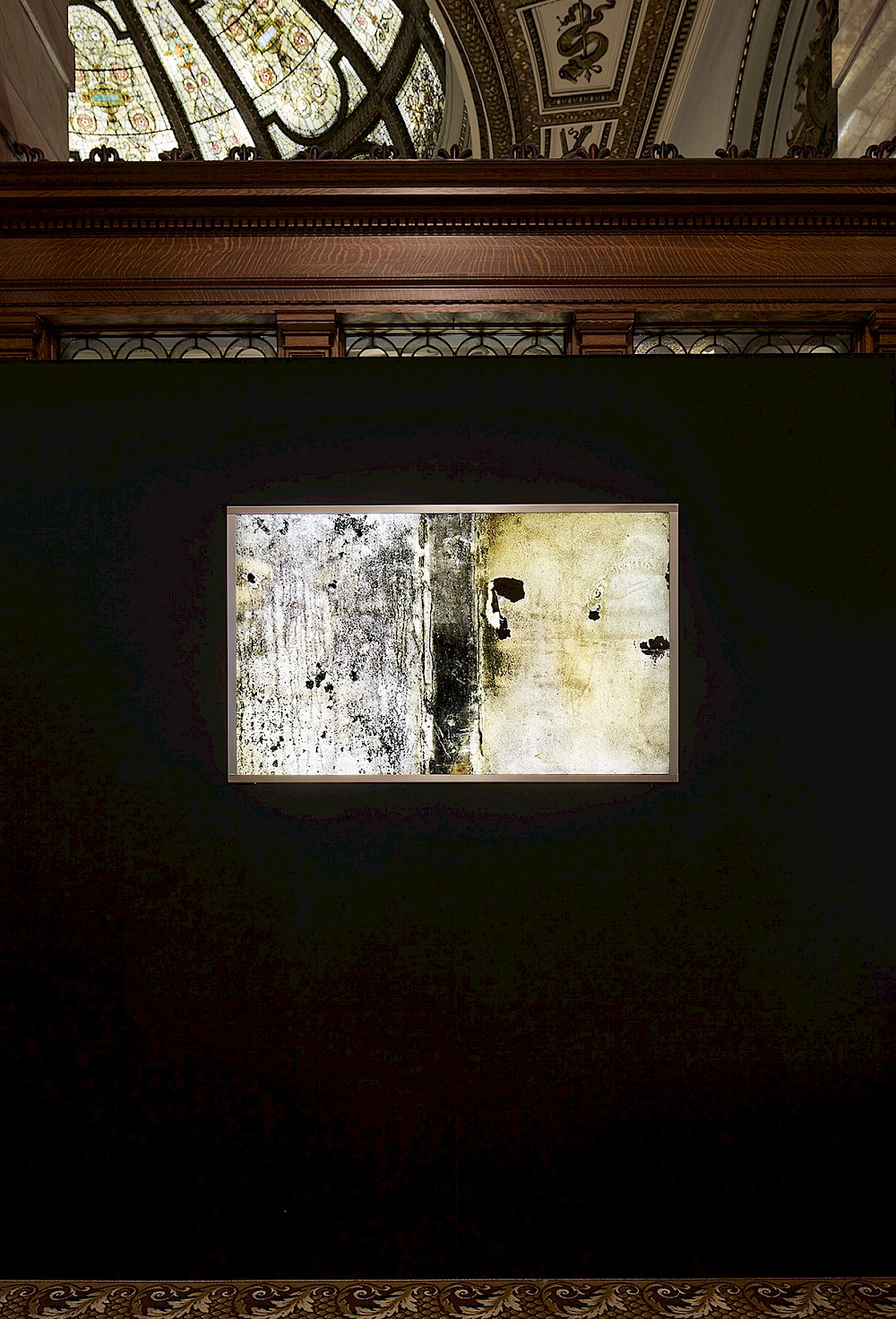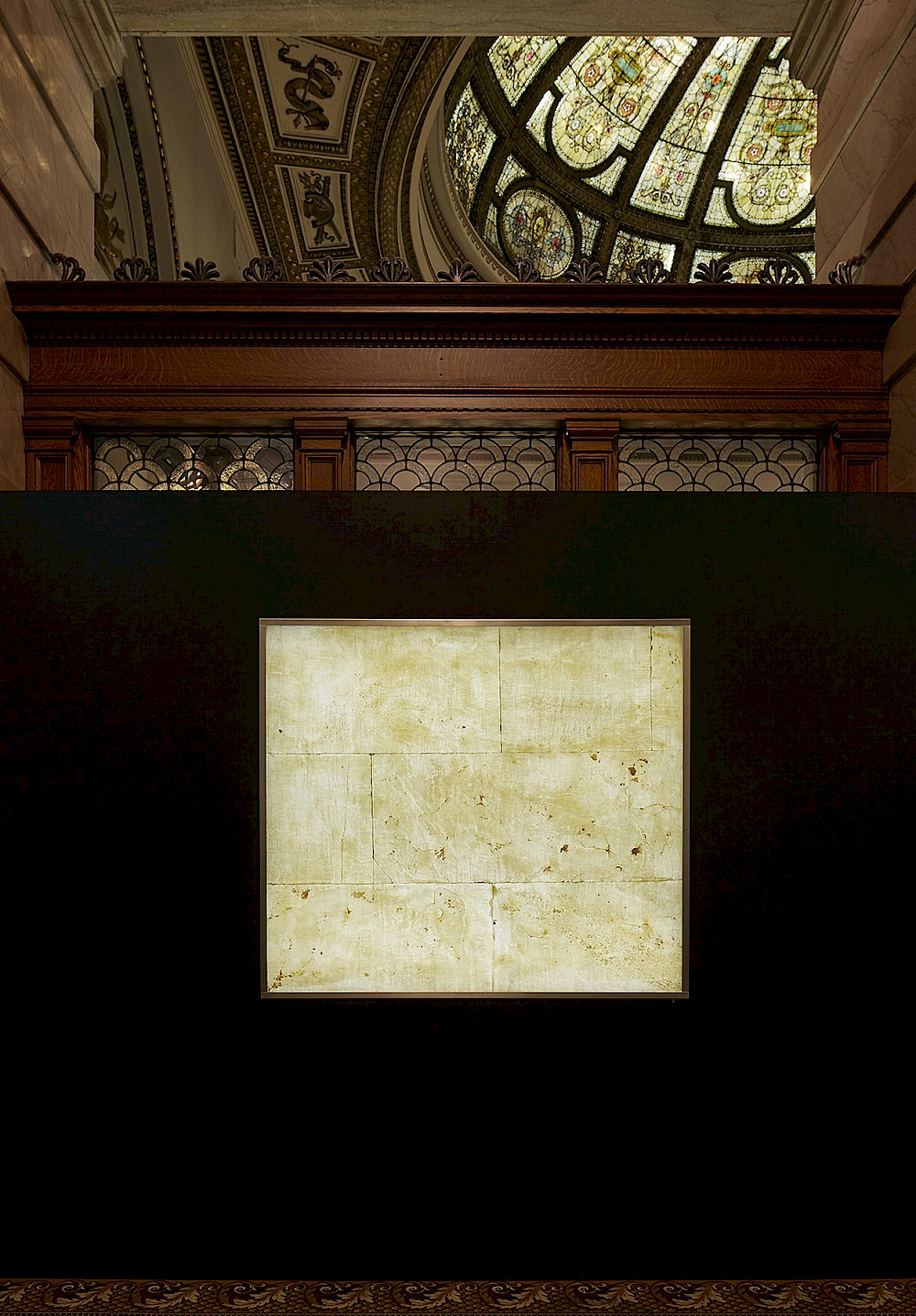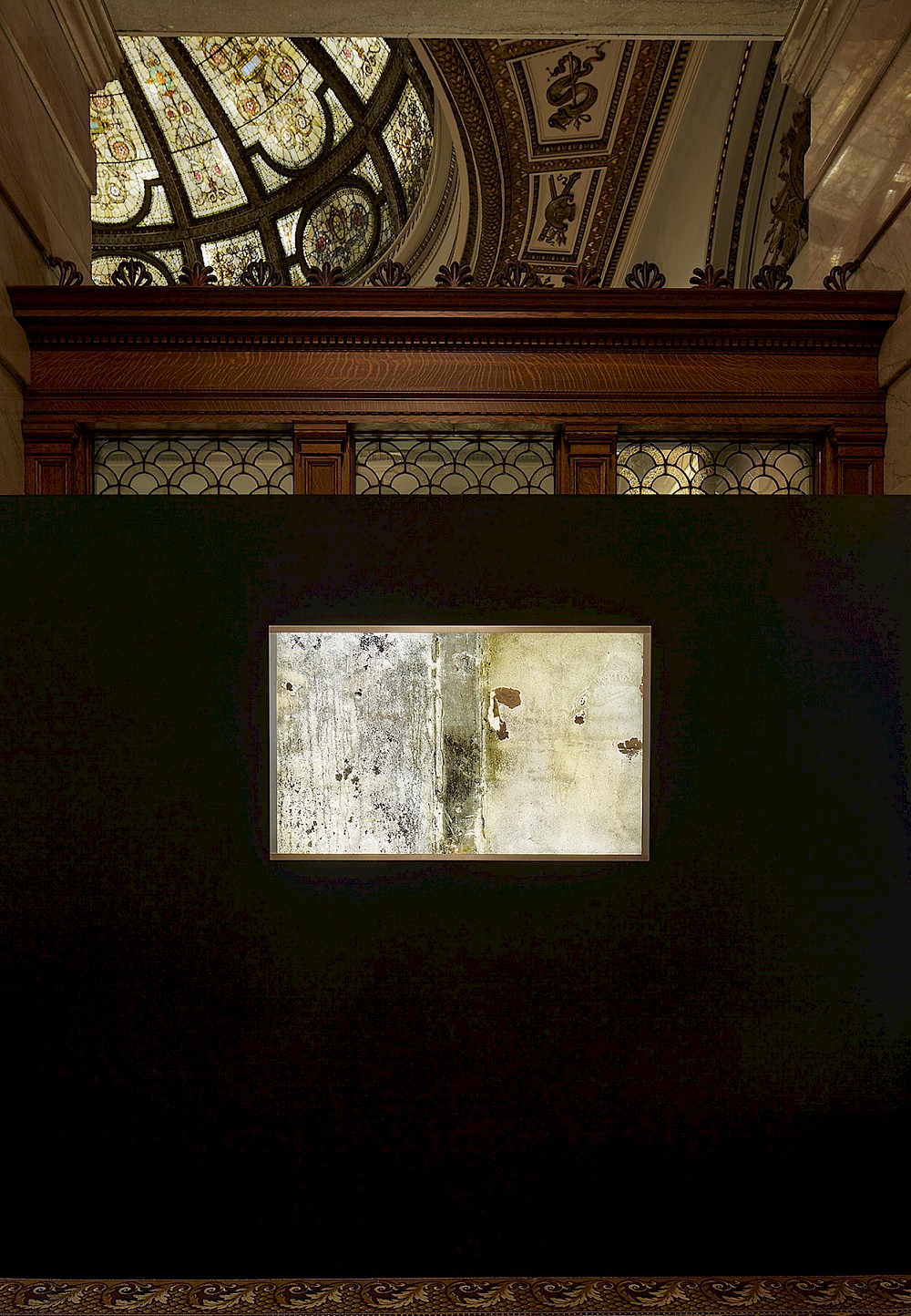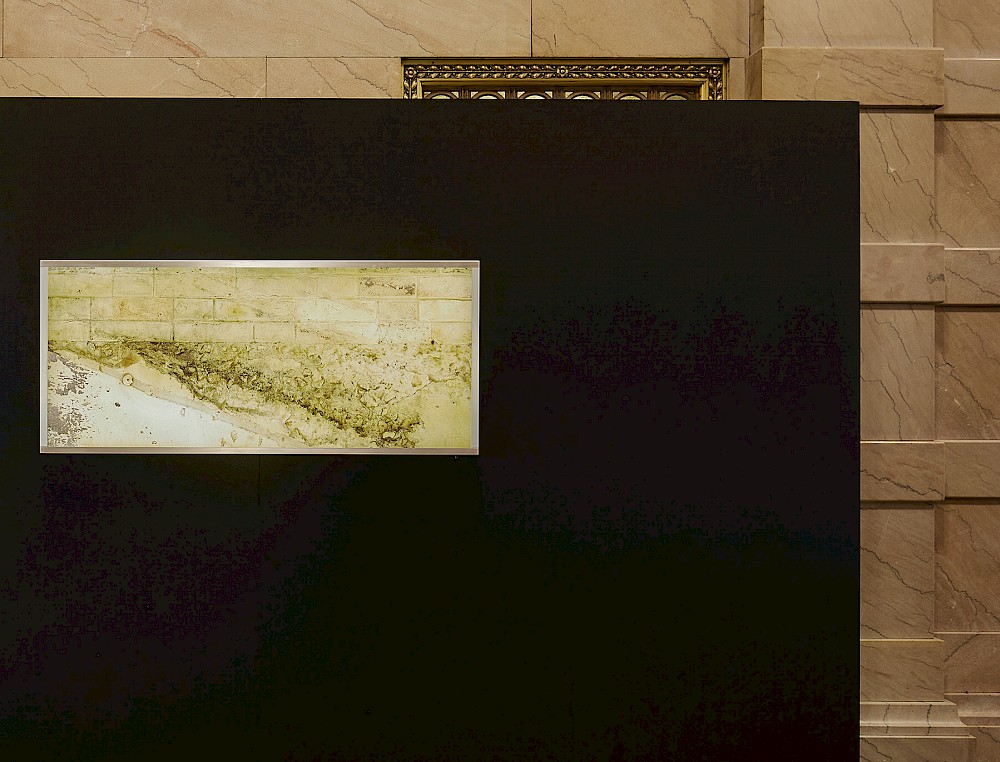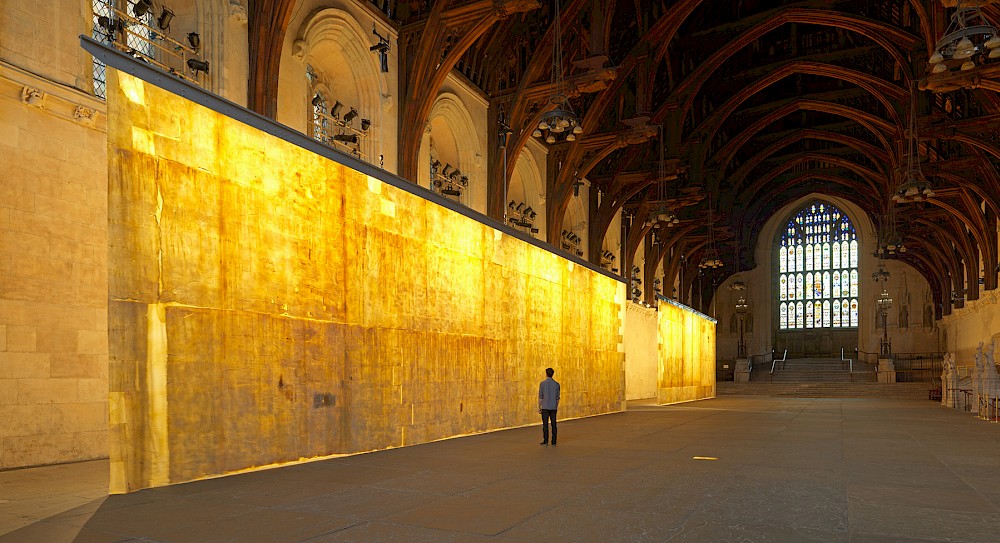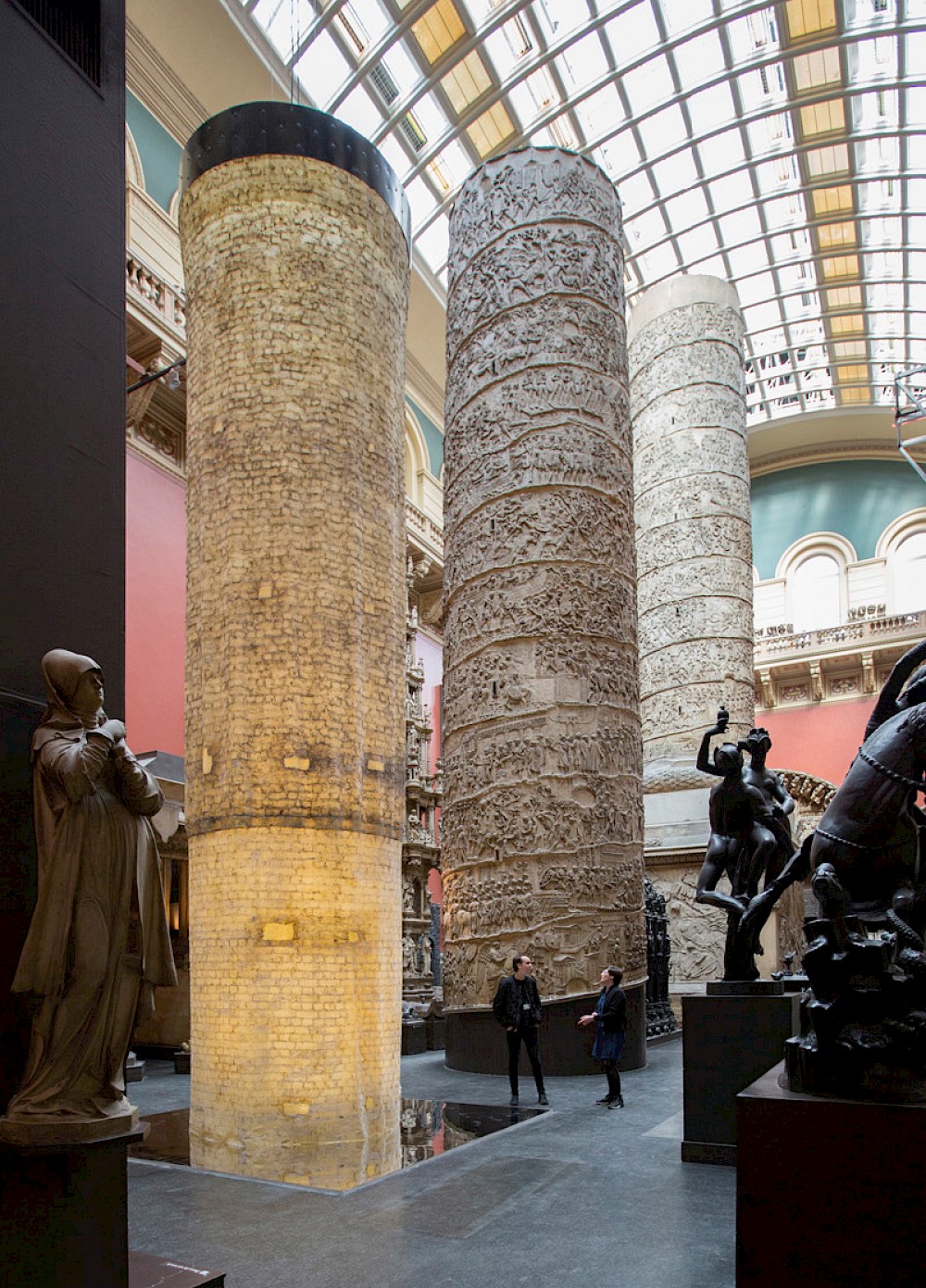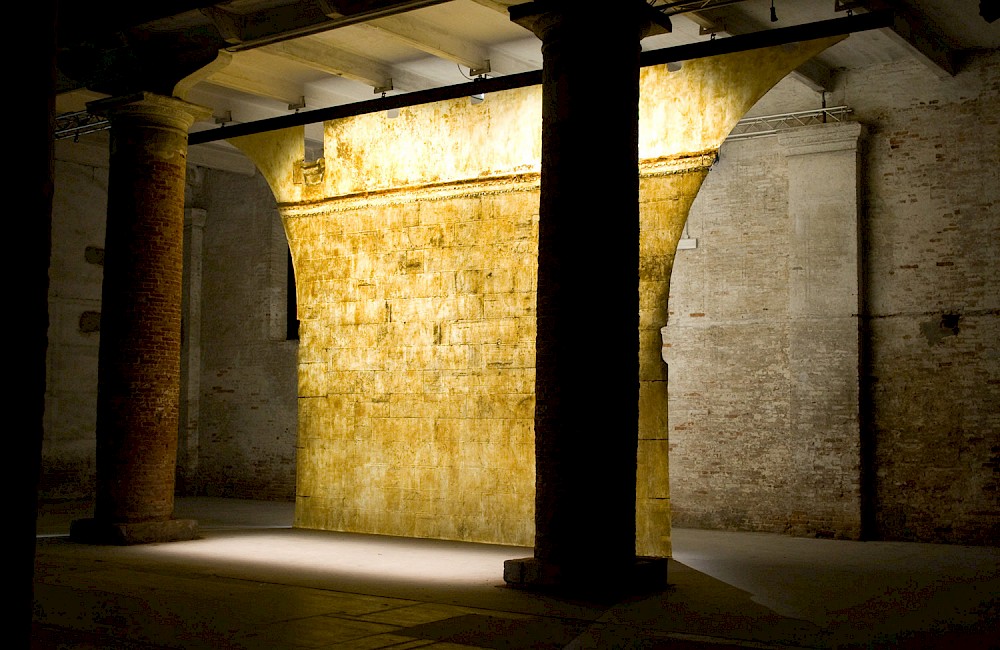BIENNIAL PROJECT
The Ethics of Dust
In dialogue with the Civil War memorial that you are standing in, Otero-Pailos has installed casts of other significant monuments. To the right is a cast of the Norwegian ministry that was attacked by a white supremacist in 2011. To the left is a cast of Westminster Hall, the birthplace of modern parliamentary democracy. Behind you are casts of monuments created in the 1860s, and later covered in pollution, that remind us of what was happening in Europe at the time of the American Civil War, namely the industrial revolution. Otero-Pailos brings these elements together and invites us to think more broadly and historically about the current U.S. debate over Civil War monuments.
The Ethics of Dust is a series of casts resulting from the cleaning of pollution from monuments around the world. Otero-Pailos applies liquid latex to monuments that absorbs the pollution as it dries. He then pulls the resulting cast of the monument with the original dust on it. Taken together, the series of casts show us pollution as a cultural and architectural material creating its own new history—that of our past and future effect on the environment and on each other.
BIO
Jorge Otero-Pailos works at the intersection of art, architecture, and preservation. He is Director and Professor of Historic Preservation at Columbia University’s Graduate School of Architecture in New York. His work has been commissioned and exhibited by major museums, foundations, and biennials, notably: Artangel, Venice Art Biennial, Victoria and Albert Museum, Louis Vuitton Museum La Galerie, Thyssen-Bornemisza Art Contemporary, and the Yerba Buena Center for the Arts. He is the founder and editor of the journal Future Anterior, co-editor of Experimental Preservation (2016), author of Architecture’s Historical Turn (2010), and contributor to scholarly journals and books including the Oxford Encyclopedia of Aesthetics and Rem Koolhaas’ Preservation Is Overtaking Us (2014). He is a member of the Academy of Arts and Sciences of Puerto Rico, the Academy of Science and Culture of Ibero-America. He has received awards from major art, architecture, and preservation organizations including a 2012 UNESCO Eminent Professional Award, the American Institute of Architects, the Kress Foundation, the Graham Foundation, the Fitch Foundation, and the Canadian Center for Architecture.



